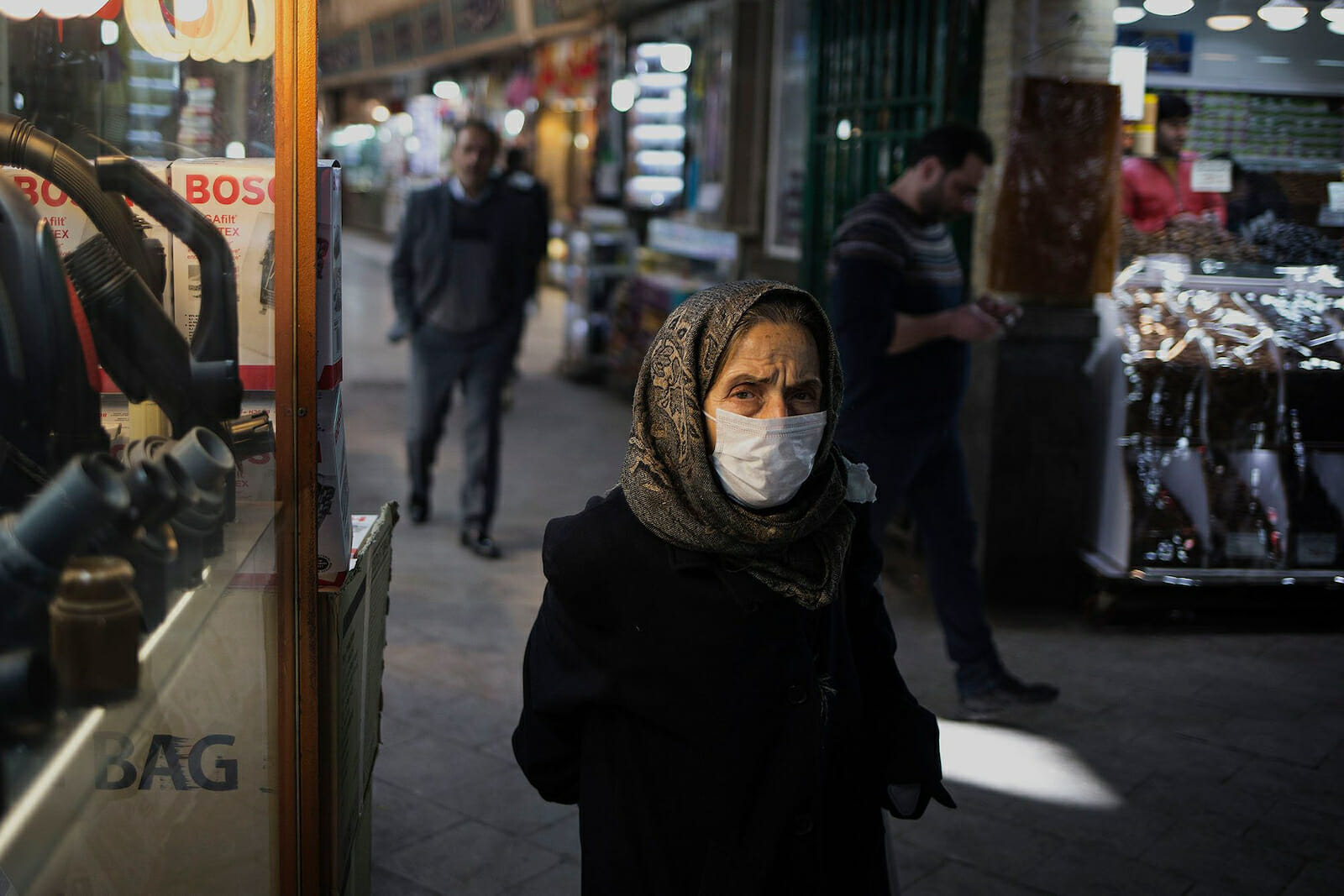
The U.S. Should Relax Iran Sanctions During the COVID-19 Pandemic
As of the third week of March, Iran had the fourth-highest number of infections and the third-highest number of deaths related to the COVID-19 pandemic. Last week, the Trump administration reiterated that it has no intention of lifting sanctions on Iran as the coronavirus outbreak continues its unrelenting march across the world. U.S. Secretary of State Pompeo justified the position by stating that humanitarian assistance is not affected by U.S. sanctions, that such assistance is widely available to Iran, and that medical-related assistance can freely flow to Iran. If that were entirely true, it might be sufficient to help meet Iran’s medical needs in ordinary times, but during a pandemic, such sanction loopholes are not adequate to meet the needs of the Iranian people.
A February Human Rights Watch report noted that restrictions on financing, combined with the sharp depreciation of the Iranian rial, have resulted in severely limiting the ability of Iranian companies and hospitals to purchase essential medicines and medical equipment. Renewed U.S. sanctions have directly impacted families’ purchasing power and contributed to inflation rates of about 30% over the past year. Iran’s nearly universal health care coverage currently absorbs a significant portion of health care costs, but the evolving failure of this system, which had already been under serious financial stress, will likely have devastating effects on millions of Iranians. As a result of the sanctions, Iran’s health sector is having great difficulty keeping pace with the soaring price of medications and medical instruments.
Although Iran produces 97% of its medicines domestically, a third of them are made with imported active ingredients. Most Iranians cannot, of course, afford to buy foreign medication. Their only option is to purchase local equivalents paid for by Iran’s national health insurance. Iran’s Ministry of Health has increased medicine production since the outbreak began, but foreign sourcing is often of inferior quality. Compounding the problem, many European banks that fear secondary U.S. penalties are reluctant to trade with Iranian companies, even those that are not blacklisted by America. Medical companies have had to pay supply intermediaries exorbitant sums in an effort to secure supplies, some of which have more than tripled in value as the rial continues to depreciate.
Iran’s economy was already in a deep recession before the pandemic hit. The International Monetary Fund has predicted that inflation could reach nearly 40% later this year, and for the first time in 60 years, the Iranian government has had to request emergency funds from the IMF to help it fight the crisis. The precipitous decline in oil prices in March have added additional pressure to the oil-producing nation, which relies on oil exports for about a third of its fiscal budget.
Last December, President Rouhani proposed that the nation’s 2020 budget would be 25% higher than 2019, despite tens of billions of dollars in lost oil revenue. The government hoped to earn $7.7 billion from exports of oil and oil products, just 13% of the revenue earned ($60 billion) prior to the imposition of U.S. sanctions. Iran is estimated to export between 200,000-400,000 barrels per day, compared with a pre-sanction high of 2.5 million. To achieve the budget target, Iran must sell hundreds of thousands of barrels more oil per day, which is not going to happen with sanctions in place.
While it is certainly true that every nation on earth has already endured hardship and will experience previously unseen hardship in the future as a result of the spread of this pandemic, it is also true that those nations under severe sanctions will suffer the most. The target of U.S. sanctions is of course against the Iranian government, but, as is always the case with sanctions, it is the people of the targeted nation that end up suffering the most. The Iranian people continue to suffer greatly as a result of U.S. sanctions against their government, and yet, it is the Iranian people that the U.S. government claims to support and stand behind. Most Iranians feel the pain, but not the apparent support of America as a result of the sanctions. If the Iranian people were inclined to rise up against their government in response to the sanctions – the ultimate objective of the sanctions – they would have done so already. That is rather unlikely to happen now.
At a minimum, the Trump administration should reconsider the composition of the sanctions regime it has put in place against Iran during the COVID-19 outbreak – not to lift them entirely, but to make more specific which goods are permitted and which financing mechanisms are not subject to sanctions. Simply stating that humanitarian or medical goods are exempt is not sufficient. If the administration really wants to show that it stands behind the people of Iran, it should start showing it in their critical time of need. Without doing so, Washington is merely strengthening the Iranian government’s contention that their continued suffering is America’s fault.
A version of this article first appeared in China Radio International’s China Plus.
